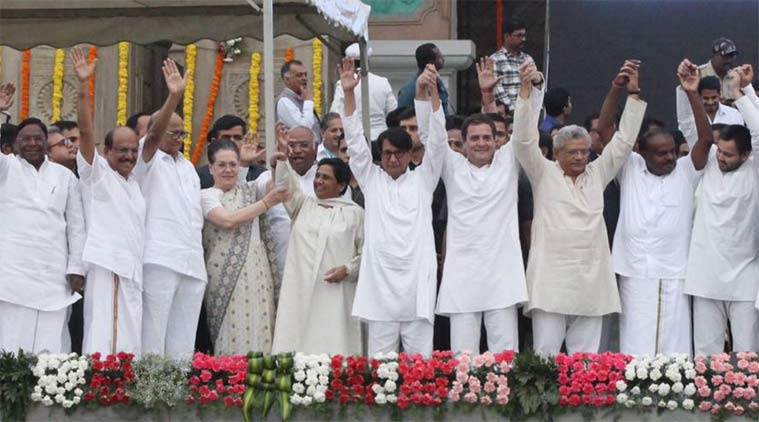Dear friends in the Opposition
The people of India are right in asking that we present an alternative vision of governance. We must provide one.

As a small part of the Opposition that represents people across India, I am writing here with purpose and a sense of urgency. In the last seven months or so, we have together been able to create an optics that has sent signals of relief to the people of this country, who were being fed (against their will) daily doses of “there is no alternative” (TINA) to the present prime minister. This TINA factor was created by a large section of the so-called mainstream media through different narratives that came dressed in several cloaks, including corruption and national security. There was hardly any space available to us to contest the fudged narrative. However, the collective solidarity meetings and rallies in different parts of India have surely unsettled the gladiators of this regime and the BJP’s invisible machine that feigned invincibility appears shaky.
Having said that, the same people who are reposing faith in us and providing us with overwhelming support have serious concerns. For the vast majority of the poor and working classes of India, the upcoming general election should not simply be about regime change. The idea is to have a progressive government replace this right-wing, authoritarian regime. “We the people” —.in whose name the Preamble of our Constitution opens — are exasperated over a range of issues from starvation deaths to agrarian distress to unprecedented social disharmony. A bleeding economy together with acute joblessness add to the picture of gloom and despair.
People now expect a government which, unlike the present regime, is not just a provider of empty rhetoric. They are right in asking us to provide an alternative vision of governance.
We must address the ailing agrarian sector and avoid band-aid interventions. So far, we have addressed farmers’ concerns in an episodic manner and by half-heartedly addressing only some of the symptoms of the multiple diseases. We have carefully avoided reaching the roots of the problem. We must begin our conversation with farmers (including the small and marginal ones) with the acknowledgement that the people who are facing the problem know the real-life solutions better than a distant bureaucracy in Delhi. Our manifesto should move away from the “jumlas” and promise time-bound scientific and sustainable interventions, including the pending issues of land reforms in several states.
Unemployment needs urgent intervention. Otherwise, as a nation and a people, we must prepare for a long period of a dark and uncertain future for our young people and the much-touted demographic dividend is turned into a nightmare. The data on unemployment is alarming as well as embarrassing. One of our foremost tasks should be to raise the pitch for the right to work to be brought into the section on fundamental rights. How can we remain comfortable with the fact that even amongst the supposedly employed, 82 per cent men and 92 per cent women are earning less than Rs 10,000 per month? We must make a promise to the young that we shall think imaginatively and work to improve the rural employment guarantee programme. Agro-based industries and food processing units with a focus on backward regions should be the commitment we make. As per one estimate, more than one crore jobs have been lost in the last year and an overwhelming proportion were from the rural India. We need to seriously review neoliberal priorities, which are invariably concerned with the movement of big capital.
The education sector needs much more overhauling than what appears on the surface. It ought to be a cause for collective shame that close to 40 per cent of schools lack basic infrastructure like one classroom for every teacher. As a nation, we need to reaffirm our faith in public-funded education. Over the last four years, there has been a massive neglect of the education sector, seen through the cuts in funding at all levels, including cuts in scholarships for SC, SC and OBC students. Besides, the Ministry of Human Resource Development’s own submission uncovers the brazen reality that for every 100 persons in the age-group 18-23 years, only a little over 25 per cent access higher education. The huge number of vacant positions across universities for several years exposes the misplaced priorities of the government. The people of India need our promise that our priorities shall be fundamentally different and we shall allocate at least 6 per cent of the GDP for education.










.png)




























No hay comentarios:
Publicar un comentario